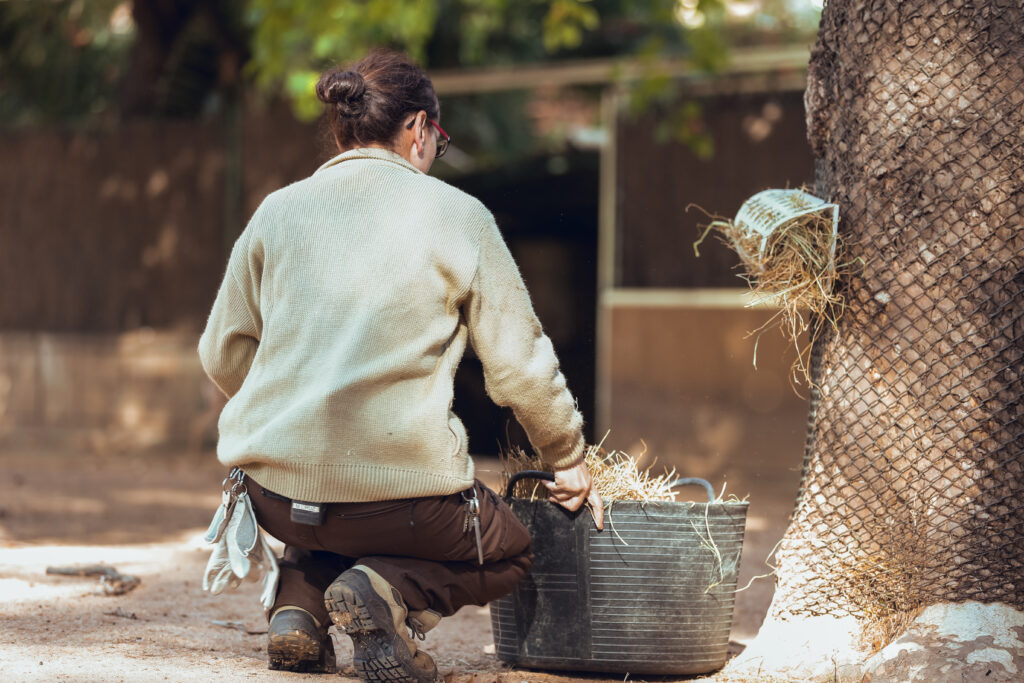
Are you looking to start your journey with equines or wanting to elevate your skills to the next level? Well, welcome to Apprentice Now’s ultimate guide to master equine grooming.
Here we will give you the 5 top tips you need for success in your Level 2 Apprenticeship.
WHAT IS EQUINE GROOMING?
Equine grooming refers to the process of cleaning, caring for, and maintaining the appearance of horses, ponies, donkeys and there hybrids. Furthermore, it involves takes such as brushing, combing, bathing, trimming and sometimes clipping and braiding the equine mane and tail. However, grooming is not the only essential for keeping the horse clean and healthy but also building a bond between the horse and its handler.
WHAT CAN I EXPECT FROM THIS LEVEL 2?
This outstanding course offers a solid foundation in the essential skills and knowledge required to pursue a rewarding career in the equine industry.
Apprentices will dive into a curriculum covering various factors of equine care and management, including nutrition, grooming techniques, handling and restraint, tack maintenance and health and safety protocols.
OUR TOP 5 TIPS TO MASTER EQUINE GROOMING
Now for the moment you have been waiting for! What 5 tips can you take into this Level 2 apprenticeship to make yourself an expert in the equine industry
UNDERSTAND EQUINE BEHAVIOUR

Firstly, one of the keys to becoming a skilled groomer is understanding the behaviour of horses. Take the time to observe and learn about their body language, preferences and signals, remember they’re all different! Building a strong rapport with the horses you work with will make your job a lot easier.
MASTER GROOMING TECHNIQUES

From brushing to hoof cleaning, mastering grooming techniques is essential for achieving professional results. In the meantime, practice regularly and seek guidance from experienced professionals to enhance your skills and ensure the comfort and well being of the horses in your care.
PRIORITISE SAFETY

Additionally, safety should always be a top priority when working with horses. Familiarise yourself with safety protocols and equipment, such as wearing appropriate footwear and handling grooming tools with care. By prioritising safety, you can minimize the risk of accidents and create a secure working environment for both yourself and the equines.
EMBRACE CONTINUOUS LEARNING

The industry is constantly evolving, so its important to stay up to date with the latest trends, techniques and advancements. Hence, you should take advantage of training opportunities, workshops and online resources to expand your knowledge. You’ll not only master equine grooming but also demonstrate your dedication to excellence in your field.
SEEK MENTORSHIP

And finally, seeking mentorship is crucial for honing your skills, gaining industry insights and navigating challenges. A mentor provides personalised guidance accelerating your learning curve professional growth in a specialised field.
HOW CAN I TAKE MY QUALIFICATION FURTHER?
Transitioning from a Level 2 apprenticeship in equine grooming involves expanding your skill set and industry knowledge. However, seeking additional certifications or specialised training could enhance your expertise and marketability. Moreover, actively seeking mentorship and staying updated on industry trends can further propel your career and open doors to senior positions.
Upon completion, you will emerge equipped not only with the skills to maintain the health and well being of horses, but also with a solid foundation to pursue further qualifications such as a Level 3 Senior Equine Groom apprenticeship.
In summary, these 5 tips at your disposal will make you well-equipped to excel in your Level 2 apprenticeship in equine grooming. Remember to always approach each day with enthusiasm, dedication and a commitment to improvement. ApprenticeNow is here to support you every step of the way to becoming a skilled and successful equine groomer.
To conclude, make sure you look out for our other blogs and for more information on apprenticeships, check our our website below!




